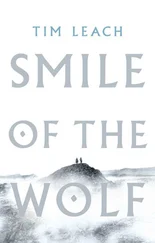‘Keep him warm,’ said Kai. ‘Feed him blood, and milk if there’s any left. A little koumiss, but not too much.’
‘He shall live?’ she asked.
‘I do not know. Perhaps.’ And at that she waved him away dismissively, for it seemed she had no more use for him.
As Kai walked away, there was a figure strolling at his side – Gaevani again. The man had a careless air about him, as though drunk on the battle gone well.
‘How did the Roman taste?’ Gaevani asked.
‘Of good wine. And good living.’
A laugh. ‘Do not tell the others. They shall devour him.’ He looked back, cocked his head to the side. ‘Think he shall live?’
‘If he does not take the wound fever, or the cold does not finish him, he may live. Or he may starve. I do not know that we have the food to feed him.’
‘I think she will make sure of that, don’t you?’
Kai looked back, and already she was at work. A silent, baleful captain, stalking through the camp and making her wishes known through gesture and wordless snarling.
‘Most woman are glad enough to make their third kill,’ said Gaevani, ‘and find themselves free of the warband.’
‘Most women are not my sister.’
‘Does she really think that any would take her spear from her at a time such as this? She must have killed many more than three already, no matter what she says.’
‘I do not think she wishes to take that chance.’
A pause. Then: ‘What happened out there, captain?’
‘What do you mean?’ said Kai.
‘Why did you turn away from the Roman? Thought you had him.’
Kai hesitated. ‘You were watching?’
‘Always a good thing to keep an eye on the captain in a scrap like that.’
‘It was my horse. We do not know each other well enough yet.’
‘I see.’
‘You do see, don’t you? Careful not to see too much, Gaevani.’
The man tapped one finger to the side of his head in a kind of mocking salute. Then he was gone, back to the looting of the dead, for he had no friends or lovers to greet.
Kai watched him go – the cold feeling of shame winding around his guts, like a snake wrapping about a hare.
They rode east across the ice and snow – no longer a pack of strays, the remnants of an army, or an errant warband. They were the beginnings of a clan now, men and women and children riding together, driving a little herd before them. For now, at least, they had more horses than they had riders.
Arite still captained the survivors of Iolas, while Kai’s warriors rode in a second column a respectful distance away. Only the children moved between them – Tomyris delighting in the sight of her father as a captain, the other children speaking with a fearless innocence to those warriors from distant clans. But otherwise, they rode apart.
Arite wondered, as they rode, why Kai had insisted it would be so – a strange, shy courtesy, that he would not challenge her leadership. Or perhaps he knew that feeling of madness that dances against the mind like a knife, that only duty to others could keep away. For every warband was filled with the dead eyed, the half mad. Those who had lost too much, who cared nothing for their own lives, would throw themselves upon the spears of the enemy the first chance that they got. But give them the leadership and those to protect, and they would fight for their lives in earnest. A captain’s mark could save many lives, when it was well placed – more often than not, it was the captain themselves who was the first to be saved.
They had no map to guide them across the open steppe, and so they pursued the ghosts of those who had come before them, the exiles and nomads who had fled from the frozen Danu and crawled their way to the north and east. They chased those who had come before the way a hunter may follow the deer when all tracks are lost, by thinking as it must think and seeing the land as it must have seen it, removing all possibilities but one.
Some of their choices were guided by necessity. They forded rivers in the only places where it was safe to do so, or camped in the one place on a plain where they might find shelter from a killing wind. Other choices were more artfully made. Given the choice between two ways across the steppe, they chose the one that the winter sun caught best, for they knew that those they followed would be seeking that path themselves, answering the longing that every nomad felt for the beautiful journey.
And as they went, they found clues of others who had passed before them. Black firepits where the children ran to blow in the hope of lighting embers. Circles in snow left by round tents, furrowed tracks left by warhorses. And, from time to time, the pile of snow and stone that might mark a grave. They left some of those markers behind themselves, for the wound fever killed some, and others were taken by hunger, or the cold, or loss of will as they lay down to die.
That was how they made their way to the north and east. The way rivulets join streams, combine into rivers, and at last flow into the sea. Each day much like another, and Arite found herself riding in a kind of wordless trance, a merciful forgetting. Only one moment that she could remember clearly, afterwards. Their third or fourth day in the saddle, when a rider broke away from Kai’s warband and rode towards Arite.
No need to guess at who it was, for there was a second shape on that horse, the Roman slung across the back like a deer from the hunt, and as Laimei rode beside Arite, their horses matched their steps. No words at first, just the wordless commune of the nomad. But at last, Laimei did speak: ‘You lead them well.’
‘I do. So did Kai, to bring you this far.’
Some kind of growling chuckle made its way from that cracked jaw. ‘Perhaps,’ Laimei allowed.
‘I thought that you could not speak. Kai said so.’
Laimei sniffed, and looked scornfully back on Kai’s company. ‘None worth speaking to there.’
Arite made a half bow from the saddle in answer. Again, the growling laugh answered her.
‘Always wished I got to ride beside you, back when you fought,’ Laimei said. ‘Heard that you were good with a spear.’
‘Yes,’ Arite said simply. For though she remembered little of the battles she had fought in or the three men she had killed to free herself from the warband, she remembered that feeling of courage – a kind of stillness, it seemed to her. She bore the scars on her cheeks as marks of bravery, for it was cowards or the careless who were wounded in the back. And she had been told by others that she had killed well.
‘You miss the fighting?’
‘No,’ said Arite, for that had been true for as long as she could remember. Then that pain again, the hot sharp touch at the heart, as she remembered how little was left to her. ‘At least, I did not. Now I do not know.’
A pause. Then, hesitantly: ‘Good fighter. Bahadur.’
‘He was. Not as good as you.’
‘No. But who is?’
A point of light at the front of the column drew Arite’s eye – the bright winter sun playing off Kai’s armour. She had always liked to tease Bahadur, to tell her husband he was a fool for letting a handsome man like Kai into his tent, and there was a shadow lifted from Kai now that he wore the captain’s mark. About the fires at night, she had heard the whispers spoken by the men and women that he led. That he was touched by one god or another, a man who had risen from the dead on the battlefield to lead them to safety. That he was a man who could not be killed. She had heard those whispers, and she knew they would not last.
‘The others do not know, do they?’ she said. ‘About Kai, and his father. Your father.’
‘No.’
‘Will you tell them?’
Читать дальше
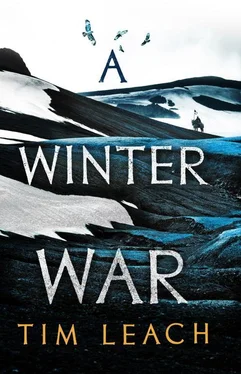
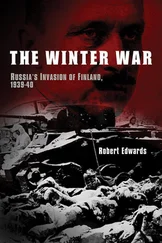

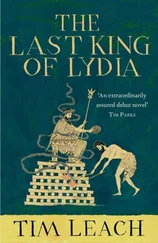
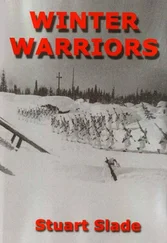
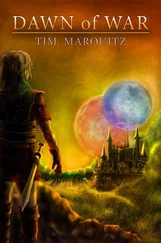

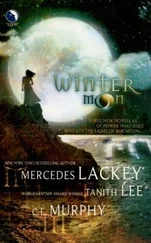
![Стюарт Слейд - Воины зимы [Winter Warriors ru]](/books/401383/styuart-slejd-voiny-zimy-winter-warriors-ru-thumb.webp)
